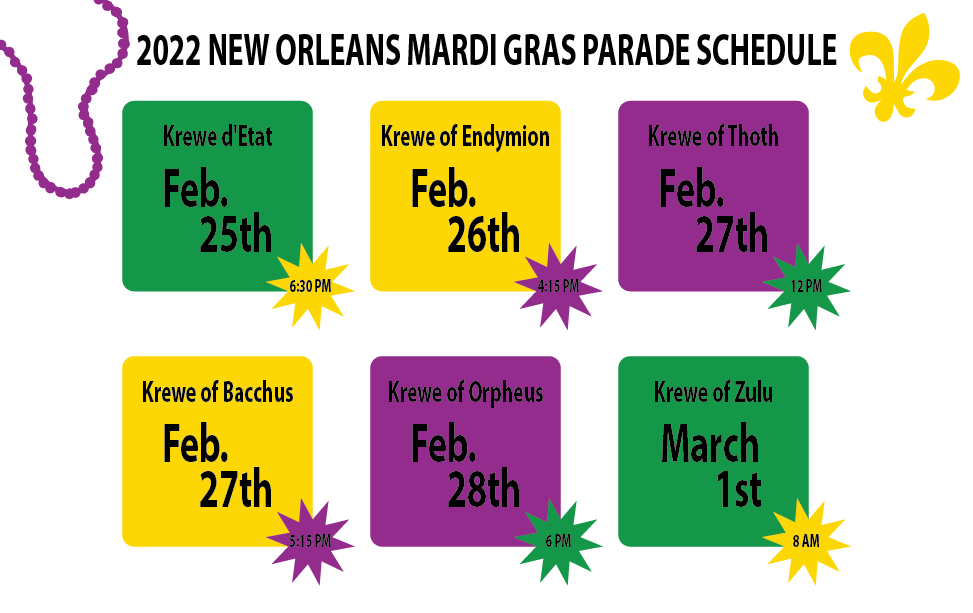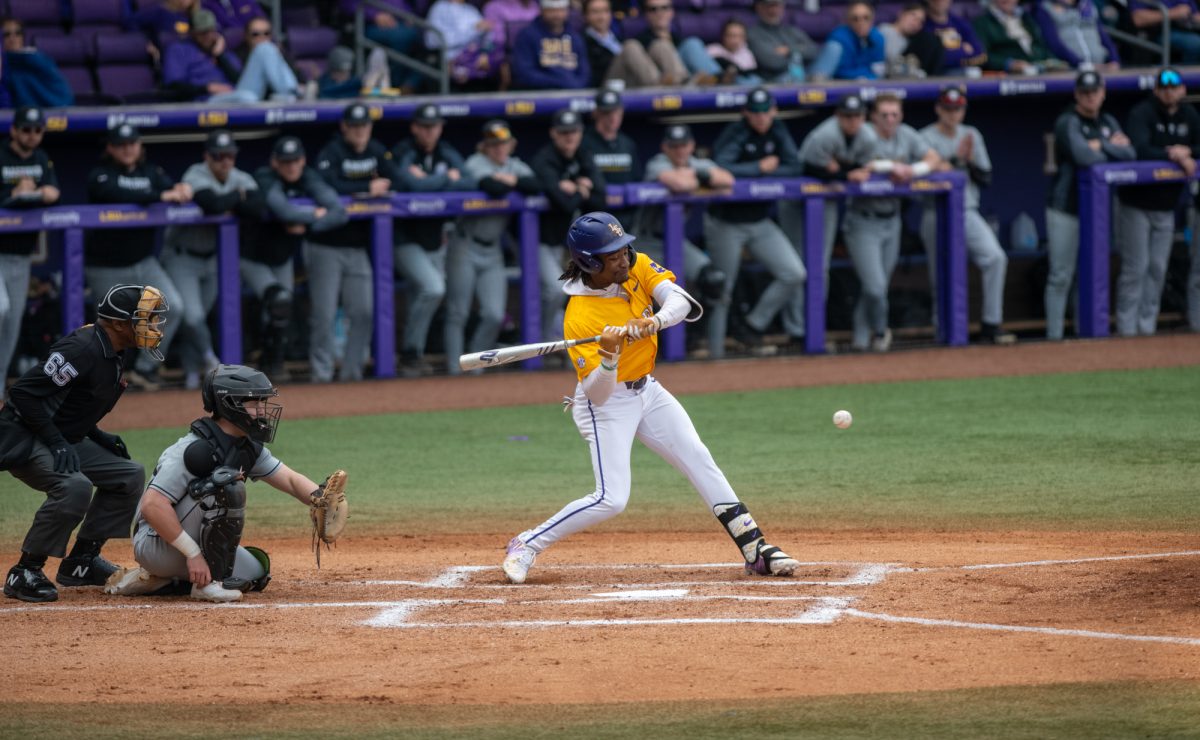Thousands gathered in New Orleans and across the state of Louisiana in February 2020 for Mardi Gras celebrations, unaware of the looming Coronavirus that had already infiltrated the United States.
The event would become a super spreader, causing as many as 50,000 new cases when the nationwide lockdown began, according to one study.
“The atmosphere was hyped to another level,” said Xavier Kent, a public relations junior and Mr. Black LSU. “New Orleans in itself if just naturally a party city.”
Though Mardi Gras festivities were almost entirely canceled in 2021, the Carnival returns this year stronger than ever, with parades and king cakes rolling out since Jan. 6.
“Mardi Gras to me means a time of togetherness. A time to celebrate the culture of New Orleans and embrace what makes this city so unique,” LSU alumnus Sarah Reason said. “Mardi Gras feels like one big happy family coming together to ‘let the good times roll.’”
Last year, New Orleans mayor LaToya Cantrell canceled all parades and shuttered bars during Mardi Gras weekend, creating huge economic struggle for an already downtrodden tourist industry.
“Around February or March, something is supposed to be happening,” said Kent. “You’re supposed to have a lot of tourists coming in, you’re supposed to have a lot of people celebrating, lots of people outside, and that wasn’t the case last year.”
During what was supposed to be Mardi Gras season, masks were still widely mandated, classes were still online, and the vaccine was only beginning to see distribution.
Even though the literal parade celebrations weren’t held, New Orleans found a way to party, even if it wasn’t the same. Residents were able to come together through small, distanced gatherings around house floats, offering some semblance of hope for Carnival in the eyes of a rampant virus.
“It just showed how a minor setback does not phase the city of New Orleans,” Reason said. “We will always find a way to celebrate.”
Throughout the state, Mardi Gras was still an opportunity for family to gather and carry out annual traditions. Kent said him and his family wake up every Fat Tuesday at about 6 a.m. to catch the Zulu parade and remain on Canal Street for hours afterward.
Mass communication senior Sophie Liberto recalled her fondest Mardi Gras memory being a game of catch with her cousin as a child using a plastic football caught in a parade.
Though this year, festivities are operating as normal; parades statewide are recommencing, and tourists are flooding into New Orleans with each passing day in hopes of wandering the streets catching beads.
“Nothing beats the little reminders of Mardi Gras even weeks after it has already passed; especially with the fact that this had been two years in the making,” Reason said. ”It’ll be very bittersweet to see the little things that were left behind from such a joyous occasion.”
From the perspective of anyone foreign to Louisiana, Mardi Gras may seem like a weekend dedicating to vices, partying and catching plastic necklaces, though for longtime natives, the holiday serves as a generational tradition of coming together, with origins stretching back hundreds of years.
To those residents, this year’s Mardi Gras will be the first true sign of normalcy since the beginning of the COVID-19 pandemic.
“I’m glad New Orleans is kind of opening back up and getting back to the party city that it deserves to be,” Kent said.
Mardi Gras returns to Louisiana for first time in two years: ‘We will always find a way to celebrate’
February 24, 2022





